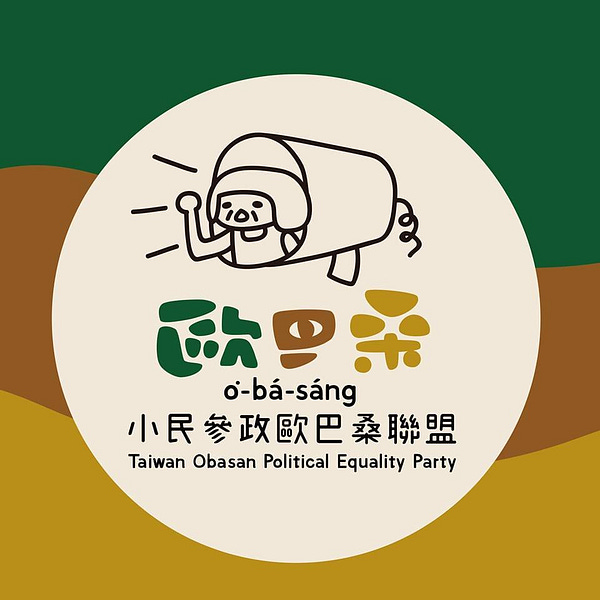Specimens, swab test Beijing. WikiCommons.
Less than two weeks ago, all eyes were on Shijiazhuang, a northern city of just over 11 million 280km southwest of Beijing, after it swiftly moved to implement China’s new Covid measures.
The new measures were announced November 11; Shijiazhuang reacted on November 13.
Markets briefly frothed with effervescent brio and sage China watchers pronounced a sea change in the aftermath of Xi Jinping’s third-term party congress win, which saw him shaking some hands abroad in Bali and in Bangkok.
Today, Shijiazhuang is locked down again like parts of Beijing, Chongqing and Guangzhou – to mention a few major cities – and the barista in Shijiazhuang who told the the Financial Times “‘We’re the first in China, an experiment,’ … ‘We will not lock back up’” now admits, ‘“I really have egg on my face.”
In China, as What’s on Weibo reported, there was even a meme expression to describe Shijiazhuang’s adventurousness, “The first to eat the crab” (第一個吃螃蟹的人).
That crab didn’t digest well, and it must be embarrassing for the Shijiazhuang barista (possibly for the Financial Times too), but there’s more at stake here than “Lu Mengyuan [who] donned her apron, applied her eye glitter and was again whipping up coffee and hot Chinese crepes for the trickle of residents venturing slowly from their homes” 10 days ago.
China’s not backing down.
It is persisting in its battle against an aerosol virus, even though logic would suggest that victory is highly, highly unlikely. Are we waiting for headlines such as, “Victory Declared in a Covid-free China” or, perhaps, “China Yields to Fate on Covid”?
Analysts and investors had hoped a batch of more moderate Covid control measures announced by China’s cabinet on November 11 would mark the start of a shift to living with the virus. Instead, the looser policies and confusing signals from Beijing have stoked a growing Covid outbreak, with new cases nearing a record 30,000 per day.
Swaths of the population have once again been locked down in an effort to cut transmission. ‘Some local governments were confused, but the central government has now made the signal clear: China is not giving up containment for now,’ said Ernan Cui, an analyst at research group Gavekal.
What’s there to add?
Airborne human-to-human transmission was stock template in apocalypse porn for decades, and, yet, as the virus continues to waft on our breaths worldwide, infecting us repeatedly with as yet unknown long-term outcomes, the reactions have been mind-boggling: anti-maskers and anti-vaxxers in the freedom-loving West, and, Oh, we’ll just shut everything until it goes away in “freedom-hating” China.
ChinaDiction’s money is on the virus in its long-haul siege of the best human collective intellect has to throw at its advance.
Meanwhile, according to reports at the time of writing, Zhengzhou, a massive city in central China – probably where your iPhone was assembled – is locking down.
Workers fight capitalism

Zhengzhou’s revolting – another of those probably 10 million+ populated cities that most regular people have never heard of – and Foxconn, the secret ingenious hand behind your iPhone, is dealing with mass worker unrest due to rolling lockdowns and salary delays.
The outcome: a hazmat-suited army vs disaffected assembly-line workers. Marx, in his most feverish of dreams surely couldn’t have cooked up late-capitalism collapse so vividly.
It’s a developing story: the Zhengzhou plant has up to 200,000 workers and possibly assembles up to 60% of global iPhones.
According to Reuters, delays in payments are due to a “technical error.”
Men smashed surveillance cameras and clashed with security personnel as hundreds of workers protested at the world's biggest iPhone plant in Zhengzhou city on Wednesday, in rare scenes of open dissent in China sparked by claims of overdue pay and frustration over severe COVID-19 restrictions.
Stage strutting
I’m your man. Source: social media.
A lot appeared to happen when Chinese Communist Party General Secretary Xi Jinping emerged from locked-down China to attend some summits, but the kabuki/karaoke is over now and will be forgotten in no time.
Xi and China’s premier Li Keqiang said “No” to Russia’s nuclear threats in the middle of Europe, without mentioning Putin by name, but leaving him hanging with his sole big-time partner.
Justin Trudeau, Canada’s prime minister got a dressing down about leaks to the press.
Let’s not forget, China does not have a “press,” so confusion on this front is not surprising.
Xi met Indonesian President Joko Jokowi, probably the most important politician most of us don’t think about, as the Economist sensibly notes (yes, here’s looking at you, Australia) and they agreed, possibly, on some possible common interests.
Michael Bloomberg was compelled to apologize on Boris Johnson’s behalf on one of the few occasions Boris may have been honest, reports The Guardian.
Game over, foreign games
Photo: Tarcil Tarcil; WikiCommons.
According to the Financial Times – and other media sources – foreign e-sports are done in China.
Popular American video games including World of Warcraft and Overwatch are set to go offline in China in the coming months, hitting revenues for their creator Activision Blizzard as it seeks to complete a $75bn sale to Microsoft.
China is the world’s largest gaming market, but foreign developers need a local partner to distribute their games in the country. Beijing also heavily censors gaming content and controls the number of new releases through a licensing system.
As one tech observer put it to ChinaDiction, “This has been a long unwitting technology transfer and now the foreign games have outlived their usefulness.
“They've been strangling the foreign games companies for years. And forced them all to set up isolated China-only networks/marketplaces, which was terrible for business.
“Now China finally has a little homegrown stuff, like Genshin Impact, which has some international reach which it appears is enough.
“It’s game over.”
Crawling in the dark (and cardboard dogs)
Cardboard dogs in Beijing; photo of unknown provenance via the Asia Media Centre NZ.
It’s the other question on everyone’s lips after whither China’s covid policy: why are university students crawling around in the dark on their hands and knees?
And taking cardboard dogs for walks …
Radio Free Asia reports:
Locked down on campus under China’s zero-COVID policy, university students are developing odd hobbies like group crawling and caring for cardboard pets, prompting concerns for their mental health, according to commentators and news reports.
Video clips uploaded to social media sites in recent days showed a group of young people crawling around after each other in a circle on a college sports field, prompting viewers to speculate it was a reaction to months-long campus lockdowns. Officials at the Communications University of China said they were "looking into" the activity.
Officials are also looking into public walking of cardboard pets, which is clearly suspicious.
Students who organized crawling activities at the Beijing University of Posts and Telecommunications were reported by Communist Party Youth League officials, and hauled in to ‘drink tea,’ a euphemism for being questioned by the authorities.
Meanwhile:
Cats and dogs made of discarded cardboard boxes have become popular in colleges and universities across the country, with ... Generation Z college students tying up their 'carton dogs' outside the doors of dorms, or 'walking the dog' on the athletics field."
Whatever they signify, none of these activities is approved.
The Greater Sinosphere
Taiwan
Elections ahoy
Take your pick Taipei, and anyone telling us China’s not ready for this, sorry, but ChinaDiction ain’t coming to your birthday party.
Long-time Taiwan watcher Courtney Donovan Smith launches a broadside against foreign media, which is currently expected to throw template at what we’re all expecting to be a good weekend for the Kuomintang (KMT).
ChinaDiction predicts that local Taiwan elections this weekend will either be a boring walkover by the KMT, or contain some surprises, but either way, read Smith’s Taiwan News think piece and remember a vote for the KMT is not a vote for China.
ChinaDiction will be covering the Taiwan elections over this weekend.
The death of a Panda
Tuan-tuan, a Chinese panda in a Taiwan zoo, during better days. Photo: CNA.
In what Focus Taiwan called a “rare show of unity” between China and Taiwan, there has been mourning across the Taiwan strait over the death of male panda Tuan-tuan, of a brain tumor in Taipei Zoo.
‘Tuan Tuan lived in the Taipei Zoo for more than a decade, bringing joy and good memories to people of all ages in Taiwan,’ said the Mainland Affairs Council (MAC), Taiwan's top agency handling cross- Taiwan Strait affairs, in a statement hours after the panda's death.
‘He also allowed everyone to learn more about giant pandas and was conducive to cross-Strait exchanges,’ the MAC said.
In case you’re wondering, Xi Jinping will still hit the “invade” button if Taiwan continues to be “uppity”.
The Aunties Party


Just putting it out there, amid the Taiwan election fever, could the A-ba-sang Aunties Party take China, if China took a punt at elections, and would it make China better as result?
ChinaDiction is going out on a limb and saying, Yes, the Aunties Party could run China better than Xi Jinping and Co.
Coda
Just do it!


One of the things ChinaDiction misses about Taiwan is “mental health doctors” who encourage you in your madness.
In the case of one Shih Feng-hsien (Shī Fèngxiān, 施奉先) that meant running for mayor, and he’s living the dream.
Shine on, you crazy diamond.










